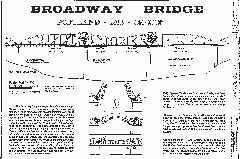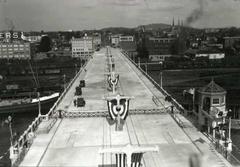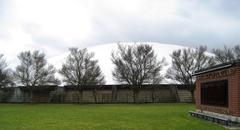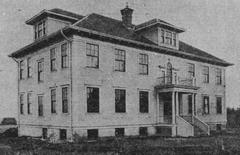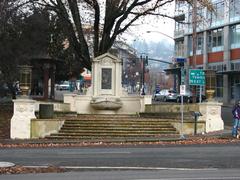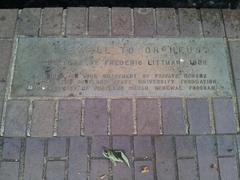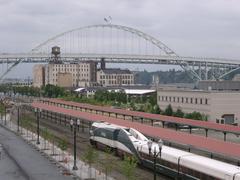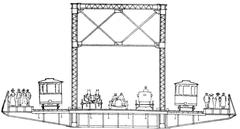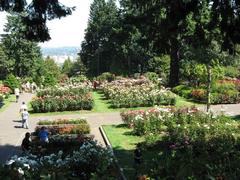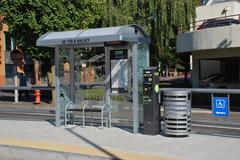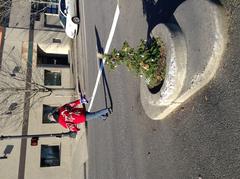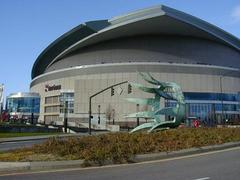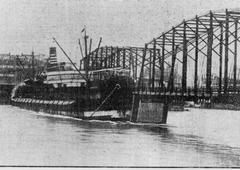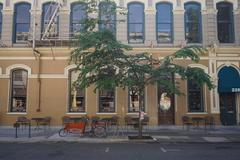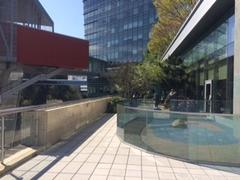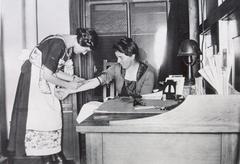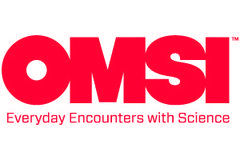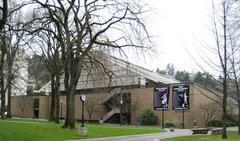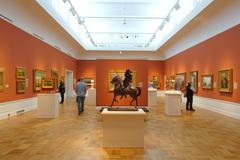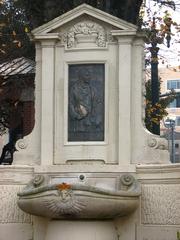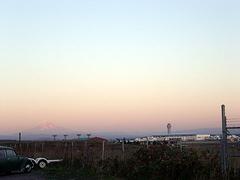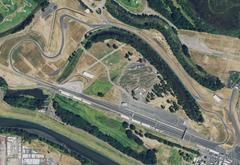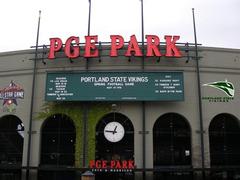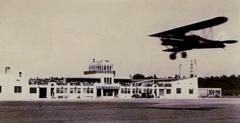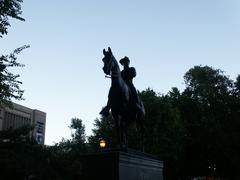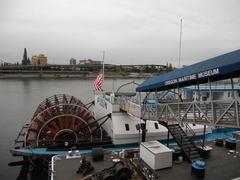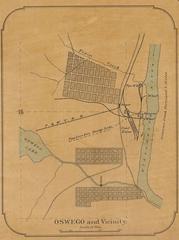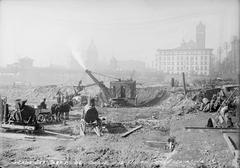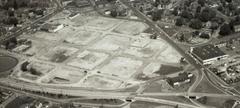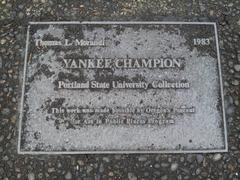Cully Park: Visiting Hours, Tickets, and Guide to Portland’s Historical Green Space
Date: 04/07/2025
Introduction
Nestled in the culturally rich and diverse Cully neighborhood of Northeast Portland, Cully Park is a remarkable example of urban renewal, community resilience, and environmental justice. Once a 25-acre landfill and brownfield, the land has been transformed through a coalition of local organizations, residents, and city partners into an accessible green space that honors Indigenous heritage, supports diverse recreation, and showcases habitat restoration. The park is fully wheelchair accessible, open daily from dawn to dusk, and free for all, making it a welcoming destination for families, fitness enthusiasts, cultural explorers, and nature lovers alike (Portland Parks & Recreation).
Cully Park’s story is deeply tied to the neighborhood’s socio-economic challenges and environmental legacy. Traditionally inhabited by the Chinook people, the site later endured industrial use and landfill operations before being reclaimed by the community. Today, it exemplifies how collaborative public-private partnerships and sustained advocacy can convert neglected urban spaces into vital hubs of culture, ecology, and recreation (LovePortland).
Contents
- History and Cultural Significance
- Community-Led Transformation
- Visiting Cully Park: Hours, Tickets, and Accessibility
- Park Layout, Facilities, and Amenities
- Events, Community Programming, and Neighboring Attractions
- Safety, Visitor Tips, and FAQs
- How to Stay Updated and Get Involved
- References
1. History and Cultural Significance
Indigenous Heritage and Early Settlement
The land now occupied by Cully Park is within the traditional territory of the Chinook people and was once the site of the Neerchokikoo village—a significant hub for Indigenous life and ceremony (LovePortland). In 1845, English settler Thomas Cully arrived, and the area retained a rural, agricultural character for decades.
From Landfill to Community Green Space
By the mid-20th century, industrial activity and landfill use led to environmental degradation, with the park site becoming a brownfield—contaminated and considered unsuitable for development. Cully remained one of Portland’s most parks-deficient neighborhoods, with high rates of poverty and limited public services (Kathy Blaha Consulting).
2. Community-Led Transformation
The Living Cully Coalition
In 2010, the nonprofit Verde led the formation of the Let Us Build Cully Park! (LUBCP!) Coalition, uniting local organizations and residents to reclaim the park for the community. For the first time in Portland, residents participated directly in environmental sampling and planning, ensuring trust and transparency (Northwest Health Foundation).
This collaborative approach prioritized anti-displacement, affordable housing, job creation, and green infrastructure. The coalition secured over $9.5 million in funding, including city and foundation support, and engaged women- and minority-owned businesses in construction (Kathy Blaha Consulting).
Environmental Remediation
Transforming a landfill into a safe public space required extensive remediation, including soil testing and methane collection. Partnerships with state agencies ensured the site’s long-term safety (Kathy Blaha Consulting).
3. Visiting Cully Park: Hours, Tickets, and Accessibility
- Hours: Open daily, dawn to dusk (typically 5:00 AM–10:00 PM).
- Admission: Free for all visitors; no tickets required.
- Location: 5856 NE Cully Blvd, Portland, OR 97218 (Portland Parks & Recreation).
- Getting There: Reachable by car, bike, or TriMet bus lines 72 and 77. Limited on-site parking is available; biking and transit are encouraged.
- Accessibility: The park is designed for all abilities, with paved paths, accessible restrooms, and inclusive playground equipment. For specific accommodations, contact Portland Parks & Recreation.
4. Park Layout, Facilities, and Amenities
Trails and Scenic Viewpoints
A network of accessible walking and jogging trails offers stunning views of Mount Hood and Mount St. Helens, making Cully Park a favorite for reflection and photography (Wikipedia).
Playgrounds and Family Facilities
The playground features modern, inclusive equipment for children of all ages and abilities, with adjacent picnic areas and open lawns (MyPacer).
Sports Fields and Fitness Amenities
Youth soccer fields, open lawns, and an outdoor fitness course support sports and group activities. Fitness stations cater to adults and teens (Verde NW).
Community and Native Gathering Gardens
- Community Garden: Local residents can cultivate fruits, vegetables, and flowers. Educational workshops are regularly held (Shine This).
- Native Gathering Garden: Co-designed with the Native American Youth and Family Center, this area cultivates Indigenous plants and supports cultural education (Verde NW).
Off-Leash Dog Area
A fenced off-leash dog park is located near the parking lot. Trails and open spaces are also dog-friendly with leash usage elsewhere (MyPacer).
Picnic Areas and Gathering Spaces
Numerous picnic tables, benches, and shaded pavilions make the park ideal for gatherings. Some areas can be reserved for events (Portland Parks & Recreation).
Habitat Restoration and Wildlife
Cully Park features restored native habitats supporting birds, small mammals, and pollinators. Interpretive signs highlight its ecological transformation (ESA Associates).
Essential Amenities
- Restrooms: Accessible Portland Loos near entrances and playgrounds.
- Drinking Fountains: Throughout the park.
- Bike Racks: Available on-site.
- Lighting: Ensures safe evening visits.
- Waste/Recycling Bins: Strategically placed for cleanliness.
5. Events, Community Programming, and Neighboring Attractions
Regular and Special Events
- Festival Latino: Soccer, Zumba, live music, and movies (BikePortland).
- Sunday Parkways: Car-free community celebrations (Portland Living on the Cheap).
- Native Gathering Garden Tending Days: Volunteer opportunities (Portland Parks & Recreation).
- Educational Workshops: Environmental and cultural programming for all ages.
Check event schedules on the Portland Parks & Recreation events page and KPNW Events.
Nearby Attractions
Explore multicultural dining in the Cully neighborhood, the Columbia Slough Watershed, and local cultural sites nearby. The park’s elevated platforms are perfect for scenic views and photography.
6. Safety, Visitor Tips, and FAQs
Safety and Cleanliness
Cully Park is generally safe and family-friendly. As with any urban park, keep valuables secure and supervise children. Maintenance is ongoing, with occasional litter after large events (WorldOrgs).
Practical Visitor Tips
- Dress for the Weather: Bring layers and rain gear in winter; sun protection in summer.
- Water and Snacks: Drinking fountains are available; packing extra water is recommended.
- Parking: Arrive early during weekends and events to secure parking.
- Pets: Use the off-leash area and clean up after your pets.
- Accessibility Questions: Contact Portland Parks & Recreation for accommodations.
Frequently Asked Questions
Q: What are Cully Park’s visiting hours?
A: Open daily from dawn to dusk (typically 5:00 AM–10:00 PM; some sources list until midnight).
Q: Is there an entrance fee or ticket required?
A: No, Cully Park is free and open to the public.
Q: Is Cully Park accessible?
A: Yes, with paved paths, ADA-compliant facilities, and accessible playground equipment.
Q: Are pets allowed?
A: Yes, with a designated off-leash dog area; leashes required elsewhere.
Q: Is parking available?
A: Yes, but limited on-site—consider biking or transit.
Q: Are there public restrooms?
A: Yes, accessible Portland Loos are available.
Q: Are picnic areas reservable?
A: Some can be reserved; others are first-come, first-served.
7. How to Stay Updated and Get Involved
- Official Park Info: Portland Parks & Recreation Cully Park page
- Events and Volunteer Opportunities: KPNW Events, Eventbrite Cully
- Living Cully Initiative: Living Cully
- Contact for Accessibility: 503-823-4000 or Portland Parks accessibility resources
- Emergencies: Call 911; for non-emergency, call 311.
For personalized park guides and real-time updates, download the Audiala app.
8. References
- LovePortland
- Northwest Health Foundation
- Kathy Blaha Consulting
- Living Cully
- Habitat Portland Region
- MyPacer
- Portland Parks & Recreation
- BikePortland
- Portland Living on the Cheap
- WorldOrgs
- ESA Associates
- Shine This
- Verde NW
- Wikipedia
Final Thoughts
Cully Park stands as a testament to what’s possible when community vision, environmental stewardship, and inclusive development converge. With its origins rooted in Indigenous history and shaped by collective action, the park now provides a thriving, accessible green space where Portland’s diverse communities can gather, play, learn, and heal. Whether you’re visiting for recreation, cultural events, or peaceful reflection, Cully Park invites you to experience the heart of Northeast Portland’s renewal.
For the latest updates on hours, events, and accessibility, visit the official Cully Park page and consider downloading the Audiala app for personalized park experiences.
